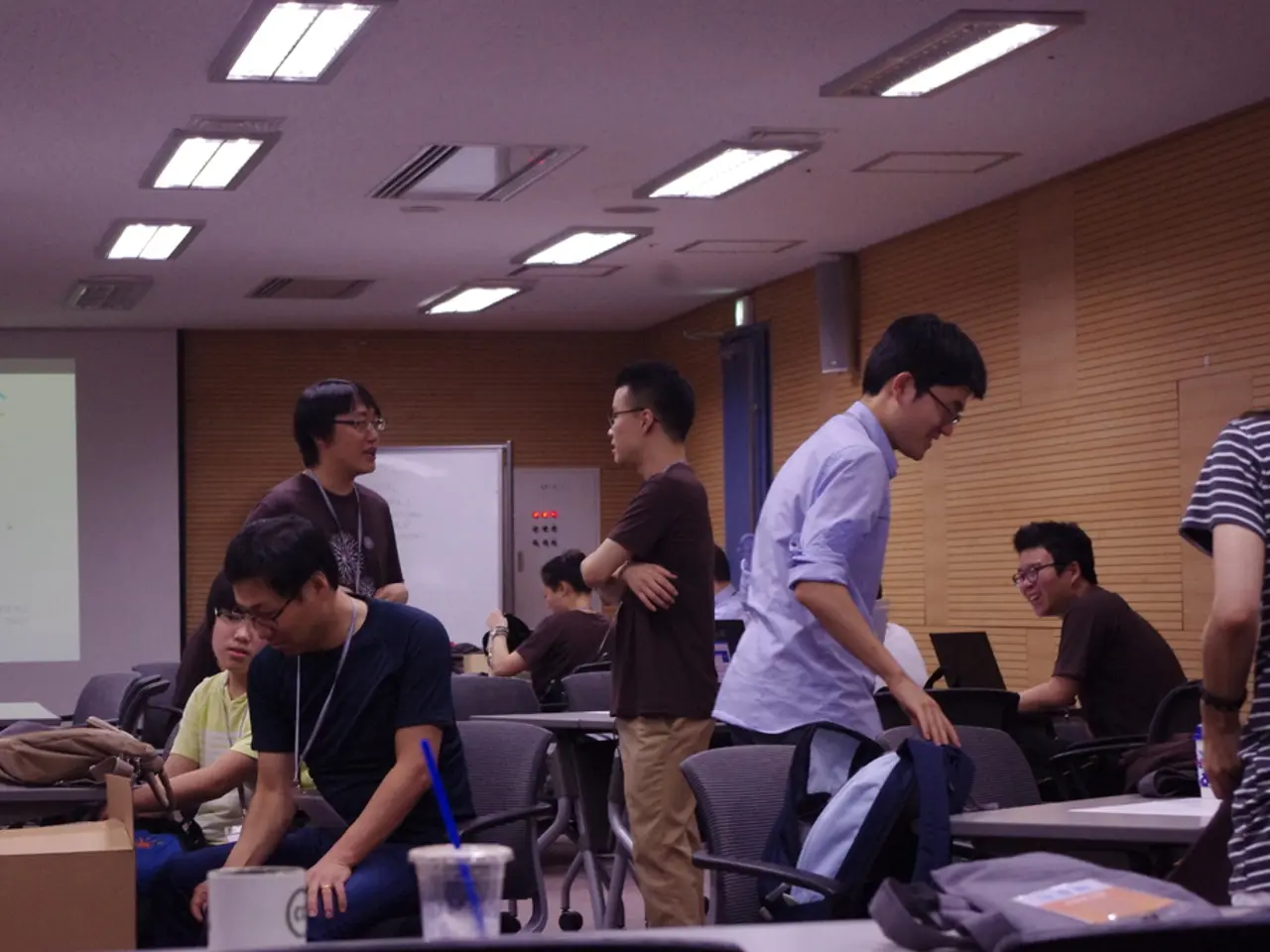Revolutionizing Education Through Immersion Scenarios
Scenario-based learning, a modern approach to education, is gaining popularity in workplaces, online learning, and traditional classrooms alike. This pedagogical strategy immerses learners in realistic, context-rich situations that demand active decision-making, analysis, and reflection.
In the workplace, scenario-based learning can help employees learn from their mistakes in simulations, making them more likely to tackle similar problems in their work lives. Online and distance learning make extensive use of this method, leveraging interactive multimedia and digital simulations to teach complex concepts.
Effective scenario design is crucial. It should clarify learning goals, balance real-life situations with course material, include decision points, and provide multiple pathways for exploration and experimentation. This approach nurtures critical thinking by simulating real-world decision complexities.
One key enhancement that occurs is active decision-making and risk analysis. Learners engage with scenarios that demand analyzing data, weighing risks, and choosing actions whose outcomes become immediately apparent within the learning environment. This dynamic nurtures critical thinking by simulating real-world decision complexities.
Scenario-based learning also aligns with authentic assessment principles by embedding tasks in realistic, discipline-specific contexts. This relevance deepens student engagement and helps them connect theoretical knowledge to practical challenges, fostering meaningful critical reflection on societal, ethical, and contextual implications.
Carefully designed scenarios act as scaffolds, guiding students to progressively develop skills like data evaluation, ethical consideration, and contextual understanding. This supports higher-order thinking beyond technical skills and promotes self-awareness about the learning process itself.
In a safe practice environment, especially in professional training, scenario- and case-based learning offer a risk-free space to rehearse skills, practice problem-solving, and adapt to evolving situations without real-world consequences. This experiential practice builds confidence and readiness for complex, unpredictable work settings.
Using unfolding or evolving cases challenges learners to continuously adapt their approaches, promoting analytical flexibility and resilience. Real-time feedback within scenarios further enhances learning by clarifying cause-effect relationships and improving decision quality.
Interactive storytelling and immersive scenarios increase learner engagement and make the acquired knowledge more memorable, encouraging active participation and long-term skill development. Across educational levels—from basic education to professional development—and fields such as data visualization, nursing, and corporate training, scenario-based learning serves as a versatile, evidence-backed pedagogical strategy.
In higher education, scenario-based learning is used to develop critical thinking and collaborative skills, with examples given in literature, engineering, and medical studies. It is also included in K-12 curricula to help students understand subjects more easily and make classes interactive.
Scenario-based learning is beneficial in special education, with educators designing scenarios to accommodate various learning styles, communication preferences, and sensory sensitivities for equitable participation. It encourages critical thinking and problem-solving skills, helping learners make informed decisions in problematic situations.
Learning a new language becomes easier when students use roleplays, deliver dialogues, and align themselves with the works of that language. Scenario-based learning can be used by learners of all age groups, from K-12 to higher education, promoting critical thinking abilities and overall learning.
Scenario-based learning promotes lifelong learning skills, making education more interactive, interesting, and effective. It improves collaboration and communication skills, fostering teamwork and leadership qualities. Scenario-based learning creates a safe, interactive space for learners to practice and make mistakes without fear of real-life errors.
Feedback plays a crucial role in scenario-based learning, guiding learners, reinforcing learning, and allowing instructors to evaluate progress and identify learning gaps. Scenario-based learning is instrumental in professional development programs, helping professionals prepare for real-life situations through case studies, roleplay scenarios, and simulations.
In conclusion, scenario-based learning is a powerful tool for enhancing critical thinking and problem-solving skills, making education more engaging, interactive, and effective. Its versatility and evidence-backed approach make it a valuable addition to any learning environment.
Read also:
- Dispute on hunger crisis in Gaza intensifies amongst numerous Jewish-American citizens
- Lucrative Business Opportunities in Nigeria: Discover Profitable Enterprises Immediately
- Carpometacarpal joint osteoarthritis: Characteristics, origins, remedies
- Humanity's Lasting Legacy Could Potentially be Piles of Chicken Remains








